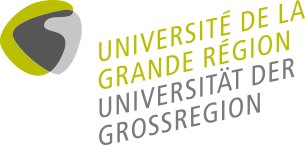
The 6th seminar of the UniGR-CBS project, "Long-term challenges of cross-border mobility in the Greater Region", organised by the University of Liège, will be held on June 8th and 9th 2020. On account of the COVID-19 pandemic, it will take the form of a webinar.
The Greater Region has the highest rate of cross-border workers within the European economical space. The management of their displacements - especially those headed to the Grand Duchy - is one of the major challenges of this territory. The current networks are indeed systematically saturated during rush hours because of the important flow of house-workplace displacements by car, and because of the polarisation of the employment in Luxembourg City and its surrounding area. According to the foresight regarding the mobilities of workers and inhabitants inside the Greater Region, the mobility issues will increase.
For now, these cross-border displacements are still strongly dependent on the car (about 86%) despite the concentration of almost 40% of the cross-border employment in Luxembourg City where converge several public transport lines, some of them being cross-border.
Now that the European Union wants to drastically reduce the emissions of greenhouse gas by 2050 and to reach carbon neutrality, and considering the potential important evolution of these cross-border flows in the next 30 years, the question of which politic to carry out to face the mobility challenges of the Greater Region can be asked.
To reply to these preliminary assessments, this seminar will approach the mobility in the Greater Region from three angles. Prospective, first, with the evaluation of transport flows by 2050 and the impacts of this evolution to the mobility and the labour organisation in the Greater Region. Critical, secondly, given the saturation of the current infrastructures and the urgency to design and implement alternative approaches to answer the identified challenges. Interdisciplinary, finally, because mobility affects several domains and the size and variety of the stakes impose to multiply the approaches and the means to answer it.
Programme available in French or German.
Contact:
Jean-Marc Lambotte, University of Liège,
Sylvain Marbehant, Université of Liège,


